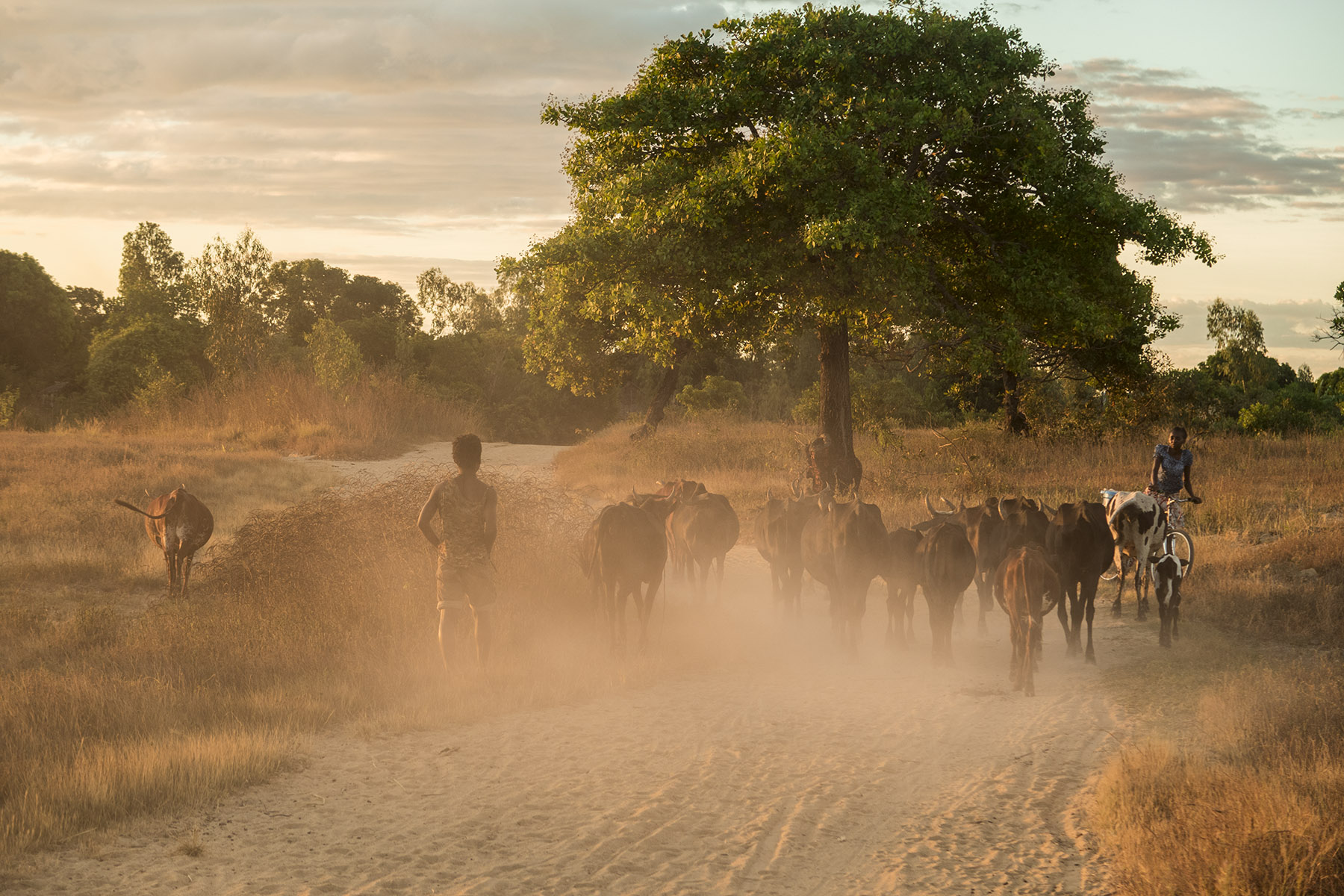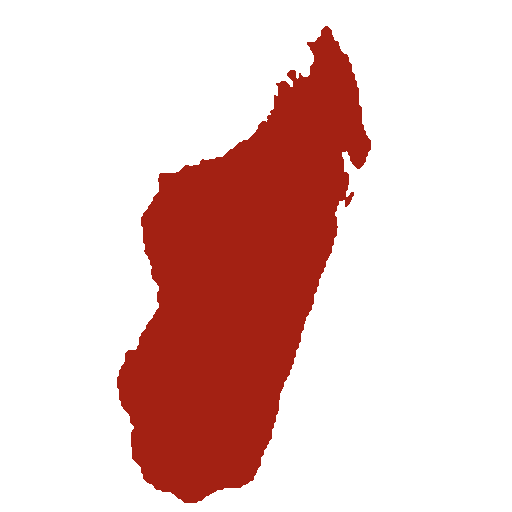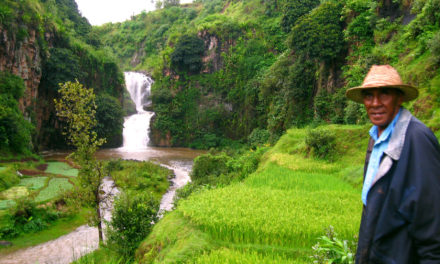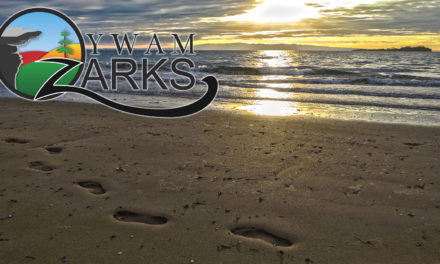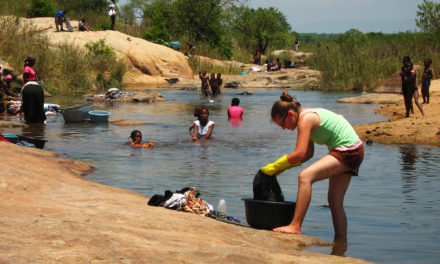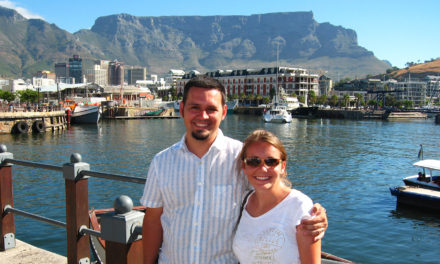“É vazaha!” Translated as, “Hey whitey!” Anytime, anywhere we go for a walk, we’ll hear at least a few people shouting that at us. Sometimes they just want to shout it as we walk by, just because they enjoy shouting it. Sometimes they really want our attention, to try out their French greetings with us, or to ask for a favor or a handout, or just to see if they can get us to turn our heads in their direction. Sometimes they want to hold a real conversation and learn a little more about us and why we’re here. But mainly they just like shouting it, especially the kids.
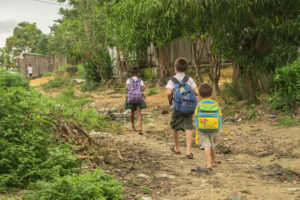
This even happens with some of the people we walk by every day. Even some of the people we’ve long known and held conversations with. In those instances, they’re mainly just happy to see us. Of course, most people here aren’t referred to by their actual names anyway, so maybe they figure shouting, “Hey whitey!” is just as good as anything else. When we hear it, there’s no doubt in our minds who they’re shouting at, so it works well enough. We always respond by greeting them back in their language, usually with a smile. Sometimes we stop for a chat.
Still, we’ve lived here in Madagascar for 9 years now. We’ve lived here in the northern part of the country, among the Antakarana people, for 7 years now. We’ve lived here in this town and this neighborhood, in this house, for 2 years now. This is our home. So why does it still feel so often like it’s not?
In general, life here in town is very different than what we were used to when we lived on Nosy Mitsio, a very rural and remote completely undeveloped island with only tiny-sized villages. There, after a couple years of adjustment, everyone everywhere knew us and called us by our relational names. We became valued members of the community, relied upon and trusted by everyone. We also relied upon them.
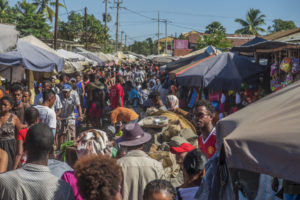
Here in town it’s very different. We find that so many people here are living transitional lives themselves. They come and stay in rented homes temporarily, looking for temporary work, making fairly temporary relationships. Then they move onto somewhere else, either here in the same town or somewhere else, and then they do the same thing (or something different) all over again. Always looking for something a bit better or cheaper than what they have now. Or just in response to changing relationships (their families often aren’t very stable either).
Here in town we live in a “courtyard” with space for up to five other neighbor families, all of us living very very close together, sharing electricity and water, a yard, etc. In the last two years, we’ve had a total of 13 different families living in this courtyard with us. Some stay for a year, some stay for a few weeks. We’ve formed relationships with all of our neighbors, usually before we realized they might not be here for long.
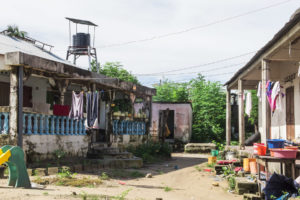
Our longest-lasting current neighbors seem to be taking the temporary nature of this urban lifestyle to heart, appearing very reluctant to form relationships with us or much of anyone else. They particularly dislike our oldest son, Matimu. But they don’t seem to trust anyone at all. They themselves seem to struggle a lot with the reality of our shared water and electricity situation, our shared “courtyard”. They’ve certainly been our most difficult neighbors and we’re often troubled by this fact. On many days we seem to be losing our sense of belonging here, rather than growing in it.
All of this is at the same time as we’re seeing our first real successes here in ministry to the Antakarana – after so many years! There’s one particular village not far from Ambilobe, Antanamazava it’s called, and there we have a group of about 10 regular disciples (and a rotating handful of others), who are very excited about following Jesus. The insights they share from the Bible stories they’re learning are very inspiring. They also share stories about growing and being transformed in their personal lives and in their families, because of what God is teaching them and because of the way the Holy Spirit is empowering them.
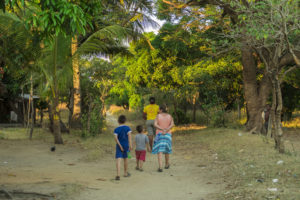
Not a single one of them had ever themselves prayed directly to the Creator God before they joined our discipleship group. Nearly all refused to even try for the first month. But as they learned more and opened up about their struggles in life and trusted that God could actually speak to them and learned that God actually wants to be with them, they became bold enough to speak to him in return. And it fires them up! It’s so awesome to see and to hear their testimonies! Others they share with are becoming interested and also want to know how this is possible – how is it that the Creator God is finally making himself actively known?
It certainly helps that we have a local ministry partner here in town, Nuckiline, a long-time friend – a local Antakarana believer, that we work closely with to start this work and to continue it. We pray together regularly – for each other and the work God has called us to together. We have weekly Bible studies together, we discuss what God is teaching and speaking to each of us, and we brainstorm about how to grow the work, how to see more people faithfully making disciples of Jesus. It’s been so great to have Nuckiline to share in this work! Though occasionally we struggle to communicate some idea of ministry or something deep on our hearts, since she doesn’t know English and our ability at the Antakarana language isn’t perfect… there’s always at least a little bit of a barrier there.
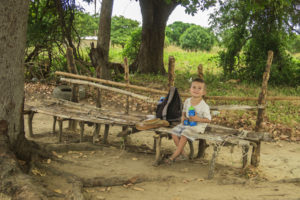
In general, all other promising ministry efforts we’ve engaged in this year have been hit and miss. There was a time things seemed very encouraging at the local prison, but during the first covid-19 restrictions here and then afterwards, that just fizzled out. But it’s not the virus’s fault… clearly the Holy Spirit wasn’t calling those people and/or they weren’t responding faithfully. An older man was initially enthusiastic about being discipled and we met with him regularly, but then he returned to his distant village (that we still don’t know the location of) and he never gave us a way to follow up with him. Often there have been others who’ve expressed strong interest, but then nothing happens.
For a long time we’ve wanted to start an English-teaching group here in town (something that’s long been highly requested and anticipated of us) and we’ve had ideas of how we can combine that with evangelism and discipleship. Then, of course, covid-19 happened and it finally reached our part of the country; it reached our town. No longer any opportunity to meet with decent-sized groups of people. I believe it’s a wise preventative effort (after all, supportive medical care for any serious illness here is basically non-existent; if covid-19 ever spreads rapidly here as it has elsewhere, it will be devastating). But it’s still disheartening.
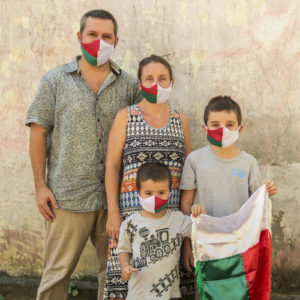
Many days of the week, we’re not sure what to do. Now is obviously not the time to be increasing our networks of random physical contacts with other people as the virus is starting to spread through our town. So it seems to have put a damper on our own attempts at starting any new ministry efforts. Our kids are around the house all day every day, which can make it difficult for us to focus on anything else. All the roads to everywhere are closed to passenger travel, and there are no parks or nice outdoor relaxing areas here at all so that we could find a way to get out as a family. As the covid-19 situation here (and its accompanying restrictions) changes from week to week, it’s been very hard to find a rhythm to settle into. It’s been difficult to find how to focus our time right now, and it feels like we’re losing focus.
With Antanamazava being so near to town (about 30 minutes away), and our group there so small, we’ve been able to consistently meet with them for discipleship (outdoors and wearing masks), which has been great. Our kids get to enjoy the open atmosphere of the village life there and they’ve made a lot of friends there. But the discipleship group there hasn’t yet reproduced as we’d like – we haven’t made it to the next step yet. And as we pray, we often feel God leading us to take a step back rather than trying to push forward harder. We sense he has big plans for and through the people there (and through our friend Nuckiline), but often for us we feel that we’re to take a backseat, rather than the driver’s seat.
We’re often feeling more and more out of place here. I imagine that most of you can relate to many of the sentiments here. If this year has been characterized by anything, it’s uncertainty. Sometimes things seem terrible, then not so bad. They seem great, and then worse again. They seem like we can finally develop a routine and then it all changes again. In everything, it seems that our personal efforts matter little. The world keeps turning, the virus keeps spreading, all the problems of the earth are magnified or worse. And what can we do about it anyway?
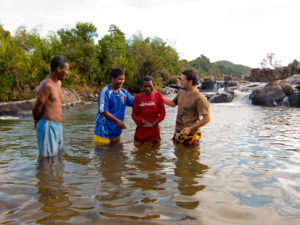
I don’t know about you, but oftentimes lately I feel myself developing a sense of nostalgia, looking back to a better time or a better place. Trying to find a time or place when it seemed like what we did mattered, when progress could be measured, or when life just felt easier and I knew my place in it. I’ve been thinking more about somewhere and somewhen else, more than I ever have.
This isn’t something I used to deal with. For me, I’ve always encountered life’s challenges head-on, always looking forward to the future and expectant about what’s to come. I always had a number of projects and goals I was working towards. Now I just have the one, and it doesn’t seem like there’s much of anything I can do to work towards it. Nor do I feel like I could even just use this extra time well to “relax at home”. Because every time we go out, we’re reminded that we’re not at home here.
In some ways that’s not so bad. In all things, perhaps especially in our difficult times, God has something important to teach us about our relationship to him and the world around us. The truth is, we’ve never had a home here on this earth, no matter what nostalgia would tell us. As the author of Hebrews describes those who follow God in faith:
This passage has really been convicting me lately. Do I look forward to God’s promises in the fulfillment of his Kingdom? And thus continue along the path he’s put me on now? Or do I look back to something on this present earth with a sense of nostalgia? And thus be tempted to turn around and go back to the place that God led me out of?
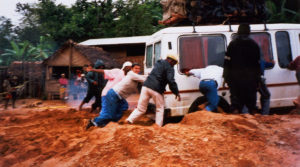
One thing I’ve learned about nostalgia is that it’s never exactly what we think it was… it’s a projection of an idealized, but inaccurate, memory. The “good old days” had plenty of struggles and challenges of their own. The grass is never particularly greener on the other side, no matter how we think we remember it. This life is not certain, and despite what we tell ourselves, it never was. We cannot achieve our own destinies here. There is nothing in this place that can ultimately satisfy and fulfill us. We, each and every one of us, truly are strangers in this land. We’ll never really fit in.
But that’s OK. This is not the land we were destined for. This is a broken and marred copy of it. God, in his power and grace, is preparing a heavenly reality that will one day completely overtake and replace this temporary shelter of ours. Our primary task in these days is to keep the faith, to keep our eyes and our hearts focused on his promise, and to live our lives in the present as the citizens of the future Kingdom that we already are, the Kingdom that is yet to be fully established and to fully transform this earth… but which one day surely will.
We’ll never truly be at home here. We’ll always be called out to as the “vazaha!” that everyone can see we are. We left our own homeland and like so many others here in town, we now live in a temporary dwelling. Like Jesus himself said to someone who wanted to follow him, “Foxes have holes, and birds of the air have nests, but the Son of Man has nowhere to lay his head.” And, “a servant is not greater than his master.” Together with Jesus, we’re strangers in this land.
And for you also, if these uncertain times and periods of confinement are instilling in you a sense of restlessness and displacement, of insecurity or lack of control, embrace it! Let it be a reminder that this place and this time is not your destiny! Together, let us fight the temptation of nostalgia, the misleading dream that sometime or someplace other would satisfy you now; the delusion that you could ever fulfill your own destiny. Instead, let us look forward to the heavenly city that is being built by God’s efforts, and let us be faithful to walk the path he’s put us on now. Even if it means long periods of restless waiting and deferred efforts. Perhaps we’ll never see the fulfillment of the promise, except from a distance. But let us look ahead to it anyway!
